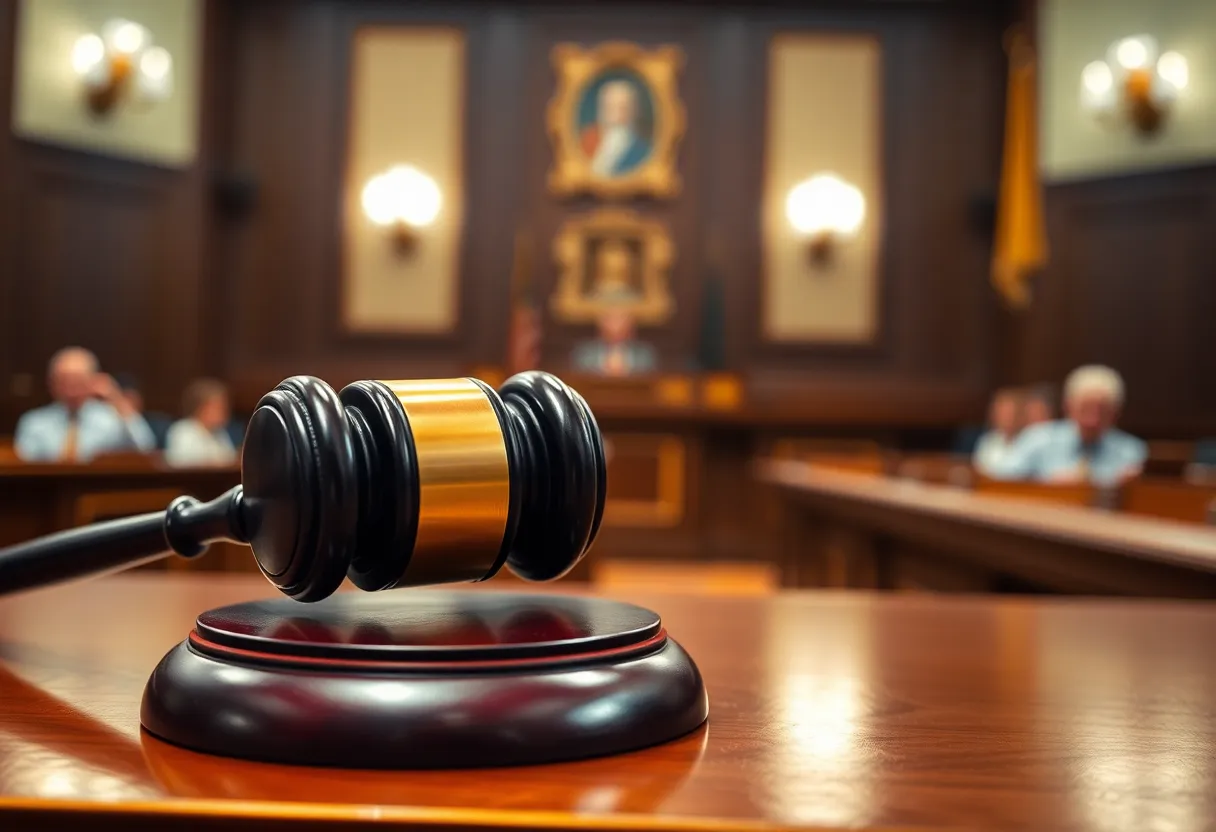News Summary
The Trump administration is reconsidering a crucial ban on chrysotile asbestos, risking public health and drawing criticism from health advocates and organizations.
Chrysotile Asbestos Ban Under Fire: A Dangerous Game of Reconsideration
The battle over chrysotile asbestos in the United States has taken a drastic turn as the Trump administration moves to reconsider a ban on the last type of asbestos still permitted for use in the country. This ongoing saga, highlighted in recent court documents, indicates that the process to evaluate this ban could drag on for nearly 30 months, leaving public health in the balance.
A Looming Health Crisis
Under the previous Biden administration, the Environmental Protection Agency (EPA) had implemented steps aimed at prohibiting chrysotile asbestos due to its well-documented health risks. Chronic exposure to this carcinogenic substance is linked to an alarming range of diseases, including lung cancer, mesothelioma, ovarian cancer, and laryngeal cancer. The EPA has reported that chrysotile asbestos is associated with over 40,000 deaths annually in the U.S. alone—sufficient evidence for many advocates to demand an end to its use.
This particular type of asbestos has largely been banned in over 50 countries due to its harmful effects, yet the U.S. continues to fall behind in protecting its citizens from this deadly mineral. On a global scale, asbestos exposure results in more than 250,000 deaths every year, confirming the urgent need for comprehensive protective measures.
The Trump Administration’s Approach
As the Trump administration currently oversees the EPA, it has taken a controversial stance by filing court documents requesting that litigation surrounding the chrysotile ban be suspended. This motion follows a wave of lawsuits initiated by various corporations and trade groups, including the American Chemistry Council, who oppose stricter regulations on asbestos. Skeptics have raised concerns that these actions are motivated not by public safety but rather by corporate interests.
Adding to this contentious narrative is EPA Deputy Assistant Administrator Lynn Ann Dekleva, whose past as a lobbyist for the American Chemistry Council has raised eyebrows. Critics view the administration’s willingness to reconsider the ban as a dangerous regression in the fight against asbestos exposure.
History of Deceit?
The debate isn’t merely academic—Donald Trump’s previous assertions regarding asbestos, including claims from his 1997 book proclaiming it to be “100 percent safe,” and accusations of a mob-led conspiracy against it, highlight a troubling trend. Further compounding this controversy, a Russian asbestos supplier has even capitalized on Trump’s notoriety to promote their products.
As health advocates argue, the proposed delay of the ban poses a serious threat to public health. They warn that any postponement could lead to increased instances of severe diseases linked to asbestos exposure, placing countless lives at risk.
A Broader Concern
The attempt to reconsider the chrysotile ban is symptomatic of a larger trend of deregulation that has emerged under the Trump administration. Many public health advocates contend that this angle threatens essential safety measures regarding chemicals integrated into industries and everyday life. Moreover, the reconsideration raises potential adverse ramifications for manufacturing processes involving chlorine and caustic soda that once utilized asbestos.
Asbestos exposure primarily occurs through inhalation of airborne fibers released during activities involving asbestos-containing materials. Unfortunately, the U.S. still lacks a comprehensive ban on all forms of asbestos, placing it at odds with safety laws in numerous developed countries around the globe.
The science behind the dangers of asbestos is robust and well-supported. Numerous studies have confirmed its status as a known carcinogen, with major health consequences documented by both the EPA and public health officials. With so much at stake, the pressing demand from concerned organizations like the Asbestos Disease Awareness Organization underscores the deep commitment to eradicating asbestos usage entirely.
Conclusion: A Call for Action
In the face of returning to a more permissive stance on chrysotile asbestos, public health advocates warn that the reconsideration of the ban could undo decades of progress in the fight against this lethal substance. As the EPA waits in limbo, the pressing question remains: will the U.S. prioritize corporate interests or the safety and health of its citizens? Time will tell, but the clock is ticking on an issue that affects thousands of lives each day.
Deeper Dive: News & Info About This Topic
HERE Resources
Judicial Ruling Pauses Auction of CARD Assets Amid Legal Turmoil
An Asbestos Dilemma: Mecklenburg County vs. Peebles Corporation in Brooklyn Village Project
Philadelphia School District Faces Federal Charges Over Asbestos Violations
Asbestos Under Fire: EPA’s Reconsideration Sparks Controversy
Trump Administration Reconsiders Chrysotile Asbestos Ban, Igniting Health Concerns
Unmasking the Asbestos Threat in Supermarkets: A Hidden Danger
Philadelphia Schools Face Criminal Charges Over Asbestos Violations
EPA Motion Sparks Alarm Among Mesothelioma Advocates
Controversial Asbestos Removal Plan for New Fire Station
Philadelphia’s Schools Face Mesothelioma Threat Due to Asbestos
Additional Resources
- Newsweek: Trump Rolling Back Asbestos Ban Sparks Warning Lives at Risk
- Wikipedia: Asbestos
- AP News: EPA, Trump, Biden, Asbestos Ban
- Google Search: Asbestos Ban
- New York Times: EPA Trump Asbestos Ban Delay
- Google Scholar: Chrysotile Asbestos
- The Independent: EPA Asbestos Ban Trump
- Encyclopedia Britannica: Asbestos



















